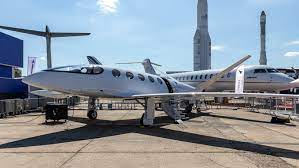
Breaking News
 Closing in on How Charlie Kirk Was Assassinated
Closing in on How Charlie Kirk Was Assassinated
 Here's a little song I just wrote. Dedicated to Al Gore.
Here's a little song I just wrote. Dedicated to Al Gore.
 Judge Blocks Executive Order Tightening Voter-registration Requirements
Judge Blocks Executive Order Tightening Voter-registration Requirements
 ALEX JONES' EXCLUSIVE EPSTEIN DOJ MEGA DOCUMENT DUMP ANALYSIS:
ALEX JONES' EXCLUSIVE EPSTEIN DOJ MEGA DOCUMENT DUMP ANALYSIS:
Top Tech News
 Critical Linux Warning: 800,000 Devices Are EXPOSED
Critical Linux Warning: 800,000 Devices Are EXPOSED
 'Brave New World': IVF Company's Eugenics Tool Lets Couples Pick 'Best' Baby, Di
'Brave New World': IVF Company's Eugenics Tool Lets Couples Pick 'Best' Baby, Di
 The smartphone just fired a warning shot at the camera industry.
The smartphone just fired a warning shot at the camera industry.
 A revolutionary breakthrough in dental science is changing how we fight tooth decay
A revolutionary breakthrough in dental science is changing how we fight tooth decay
 Docan Energy "Panda": 32kWh for $2,530!
Docan Energy "Panda": 32kWh for $2,530!
 Rugged phone with multi-day battery life doubles as a 1080p projector
Rugged phone with multi-day battery life doubles as a 1080p projector
 4 Sisters Invent Electric Tractor with Mom and Dad and it's Selling in 5 Countries
4 Sisters Invent Electric Tractor with Mom and Dad and it's Selling in 5 Countries
 Lab–grown LIFE takes a major step forward – as scientists use AI to create a virus never seen be
Lab–grown LIFE takes a major step forward – as scientists use AI to create a virus never seen be
 New Electric 'Donut Motor' Makes 856 HP but Weighs Just 88 Pounds
New Electric 'Donut Motor' Makes 856 HP but Weighs Just 88 Pounds
 Donut Lab Says It Cracked Solid-State Batteries. Experts Have Questions.
Donut Lab Says It Cracked Solid-State Batteries. Experts Have Questions.
Eviation prepares to fly Alice, its stunning luxury electric plane

The company says it's just taken delivery of its first electric motor, one of three Magnix Electric Propulsion Units the Alice will use to power its three variable pitch pusher props, one on a pod at the end of each wing and a third on the tail. The latter is designed to accelerate fast-moving air around the fuselage and turn the whole body into a bonus wing surface for extra lift.
The prototype is certainly a striking looking aircraft, all space-age looking with its big v-tail and that tastefully squashed high-lift fuselage. Once everything's all hooked up, it'll carry two crew and nine passengers at cruise speeds up to 253 mph (407 km/h), and Eviation says the low noise output of its electric powertrain will make a solid contribution to the comfort factor in the back.
For any electric aircraft, 506 miles is a pretty solid range figure at this point, and in order to manage that the Alice needs to carry a monstrous 8,200 lb (3,720 kg) of lithium-ion battery – more than half of the aircraft's 14,700-lb (6,668-kg) maximum takeoff weight. It's built from the ground up using lightweight composite materials to compensate.
Eviation says the Alice and other early electrics like it will be the start of a price-driven snowball in the aviation business. Similar to electric cars, they'll likely be more expensive up front than a traditional fuel-burning plane due to the high cost of lithium batteries – but their vastly reduced maintenance and fuel costs will make them a ton cheaper to run. Eviation is betting that it won't take too long before fossil burners are struggling to compete – at least in this size class and for shortish flights of 500 miles (805 km) or less.



